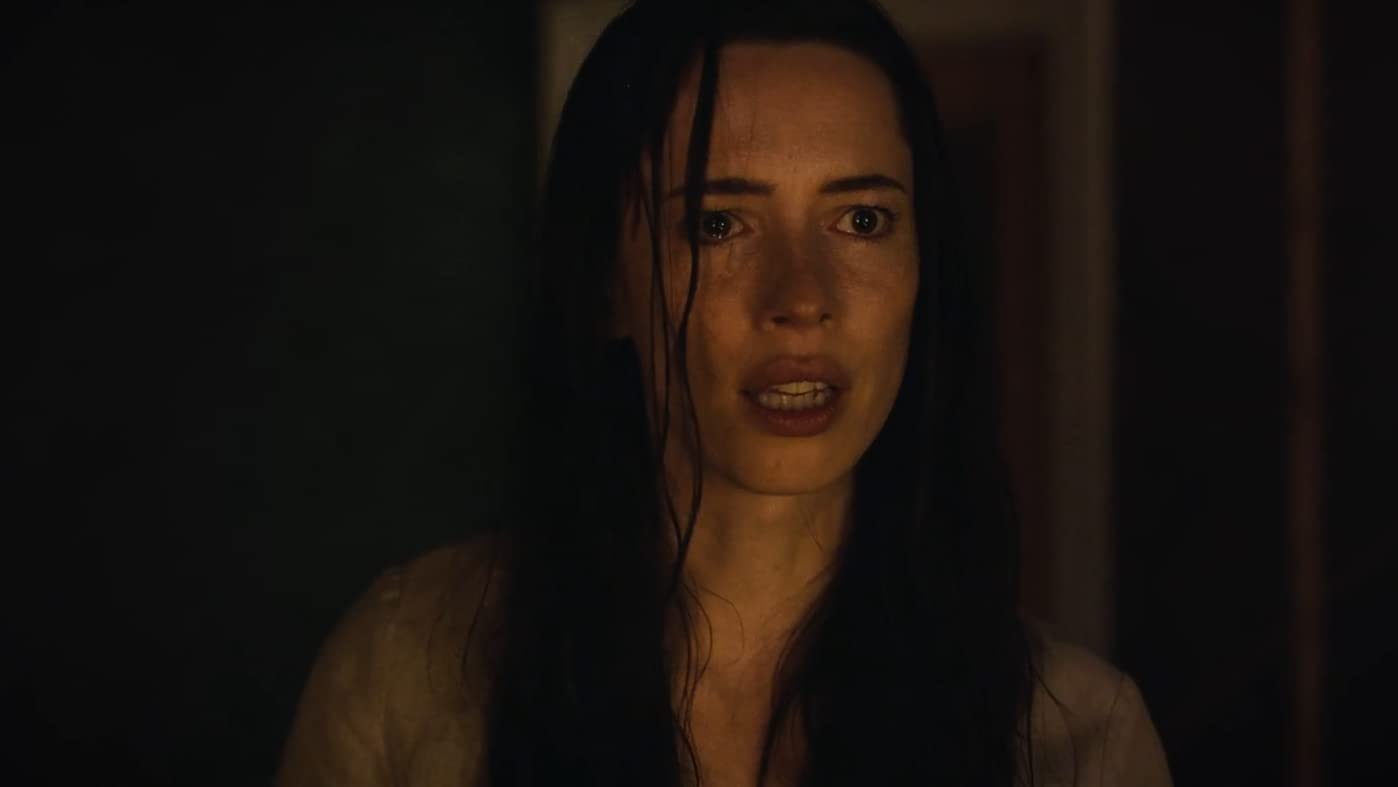In THE NIGHT HOUSE, star/producer Rebecca Hall dares to give us a female protagonist who does not ask us to like her. In fact, she all but dares us not to. Yet, in a brilliant performance that combines pain and vitriol, she makes us empathize with a new widow who may or may not be losing her mind after her husband’s unaccountable suicide.

Rebecca Hall
She plays Beth, who insists on being alone in the lake house Owen (Evan Jonigkeit) built for her, and returning to work much too soon. Her endless expanses of free time are spent wondering why he did it, leaving what seemed to be a happy life with a suicide note that explains everything and nothing. Sleepless nights and too much brandy lead to nightmares about a mirror image of her house across the lake, where no house exists, as well as a shadow figure lurking in her own house that could be a trick of the eye, or a menacing presence biding its time.
One nightmare wherein Owen texts her from beyond the grave leads to a disturbing discovery about the man who seemed to have no secrets from her, including his device passwords. On his phone there are pictures of strange women who look like her, which no amount of comforting explanations by her friend, Claire (Sarah Goldberg), can assuage. A hike to where she saw the mirror house leads to a another revelation from a kindly neighbor (Vondie Curtis-Hall) about Owen’s secret life. Her obsession over the odd drawings in Owen’s sketchbook, and the occult volumes she comes across while cleaning out his things, alarm her friends, whose help she rebuffs with biting sarcasm.
The trope of leaving an audience guessing about what is or isn’t a dream is not a new one, but the subtle nuances employed here elevate the idiom. As does Hall, in a virtually one-woman show during which the twists and turns of her character’s tortured psyche gradually overwhelm her. She deftly skirts the mundane showiness of hysteria, using instead an iron resolve with a distinct edge of yearning and fear. She can make a cutting remark a lethal weapon, and a taunting challenge to the unknown a plaintive cry for help. In fact, it is Beth who becomes the boogeyman, intimidating the woman whose picture she finds on Owen’s phone, and scaring her friends as they watch her become unhinged, and are powerless to do anything about it.
We are firmly in the externalization of Beth’s turmoil, beautifully juxtaposed with the serenity of a rural lake, jolted into uncertainty with a minimal use of special effects, and barely a trace of the traditional jump-and-scare technique. Director David Bruckner creates tense scenarios just from the way Beth wanders her property at night looking for the source of unaccounted noises, or a close-up of footprints appearing where they shouldn’t be.
THE NIGHT HOUSE is an incisive study of helpless grief, and its power lies in never straying from that central premise. For all the overtones of the supernatural, it is the terror of slipping into very real madness that drives it, making it a first-rate psychological thriller that will leave you shaken to your core.
Your Thoughts?